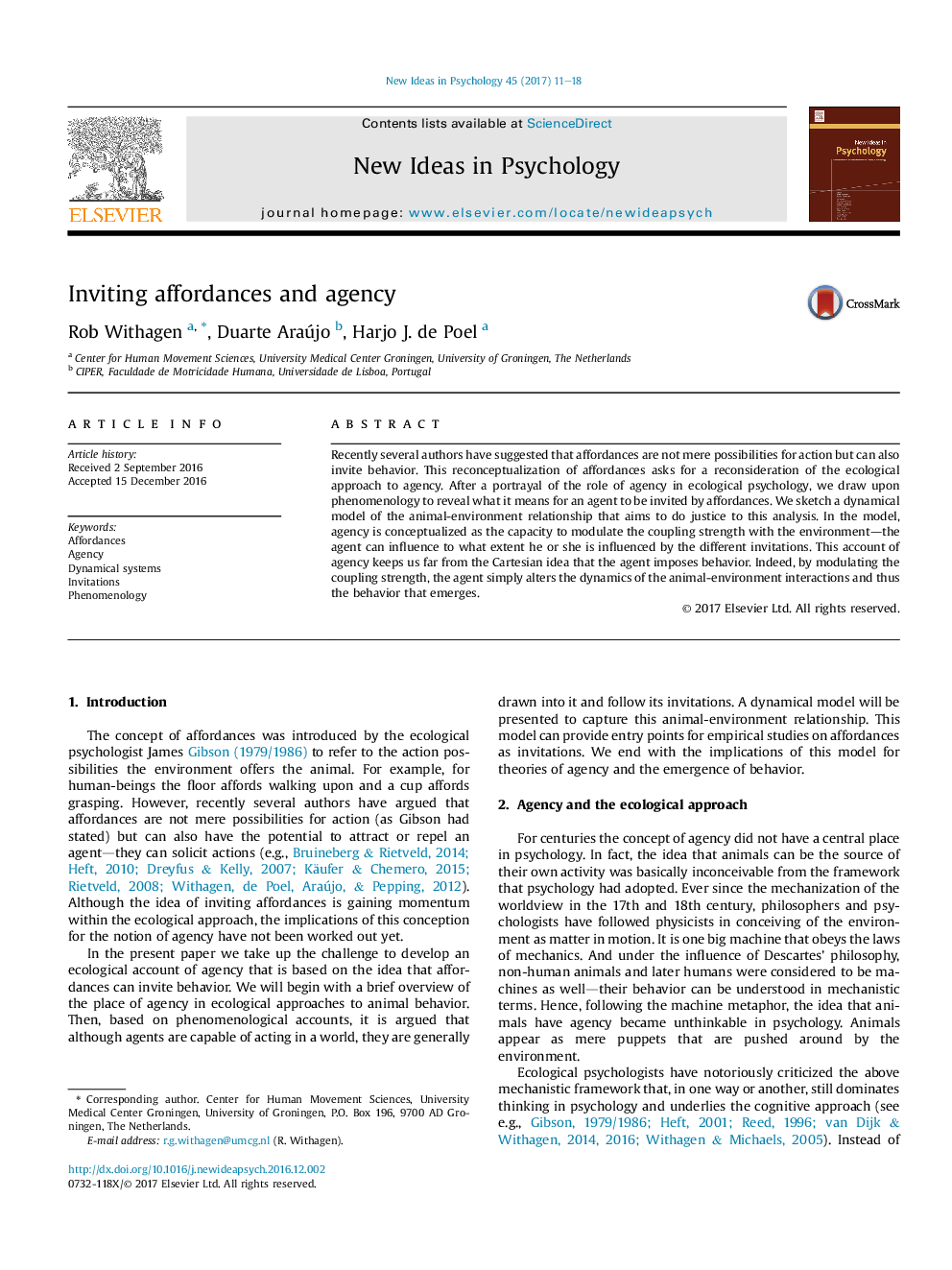| کد مقاله | کد نشریه | سال انتشار | مقاله انگلیسی | نسخه تمام متن |
|---|---|---|---|---|
| 4932979 | 1433742 | 2017 | 8 صفحه PDF | دانلود رایگان |
عنوان انگلیسی مقاله ISI
Inviting affordances and agency
ترجمه فارسی عنوان
دعوت هزینه ها و آژانس
دانلود مقاله + سفارش ترجمه
دانلود مقاله ISI انگلیسی
رایگان برای ایرانیان
کلمات کلیدی
ترجمه چکیده
به تازگی چندین نویسنده معتقدند که دسترسی به امکانات صرفا برای اقدام نیست بلکه می تواند رفتار را نیز دعوت کند. این تصمیم گیری از فرصتها، بازخوانی رویکرد اکولوژیکی به آژانس است. پس از تصویربرداری از نقش آژانس در روانشناسی اکولوژیکی، ما بر پایه پدیده شناسی ترسیم می کنیم تا فاش شود که چه چیزی به معنای یک عامل است که می بایست با هزینه ها دعوت شود. ما یک مدل دینامیکی روابط حیوانی-محیطی را طراحی می کنیم که هدف آن عدالت در این تحلیل است. در مدل، آژانس به عنوان ظرفیت مدولاسیون قدرت اتصال با محیط زیست مفهوم می شود - عامل می تواند تا حد قابل توجهی تحت تاثیر دعوت های مختلف تاثیر بگذارد. این حساب آژانس ما را دور از ایده کارکردی می داند که عامل رفتار را تحمیل می کند. در واقع، با تعدیل نیروی اتصال، عامل به سادگی تغییرات پویایی تعاملات حیوانی-محیطی و در نتیجه رفتار که ظهور می کند، تغییر می کند.
موضوعات مرتبط
علوم انسانی و اجتماعی
روانشناسی
روانشناسی رشد و آموزشی
چکیده انگلیسی
Recently several authors have suggested that affordances are not mere possibilities for action but can also invite behavior. This reconceptualization of affordances asks for a reconsideration of the ecological approach to agency. After a portrayal of the role of agency in ecological psychology, we draw upon phenomenology to reveal what it means for an agent to be invited by affordances. We sketch a dynamical model of the animal-environment relationship that aims to do justice to this analysis. In the model, agency is conceptualized as the capacity to modulate the coupling strength with the environment-the agent can influence to what extent he or she is influenced by the different invitations. This account of agency keeps us far from the Cartesian idea that the agent imposes behavior. Indeed, by modulating the coupling strength, the agent simply alters the dynamics of the animal-environment interactions and thus the behavior that emerges.
ناشر
Database: Elsevier - ScienceDirect (ساینس دایرکت)
Journal: New Ideas in Psychology - Volume 45, April 2017, Pages 11-18
Journal: New Ideas in Psychology - Volume 45, April 2017, Pages 11-18
نویسندگان
Rob Withagen, Duarte Araújo, Harjo J. de Poel,
